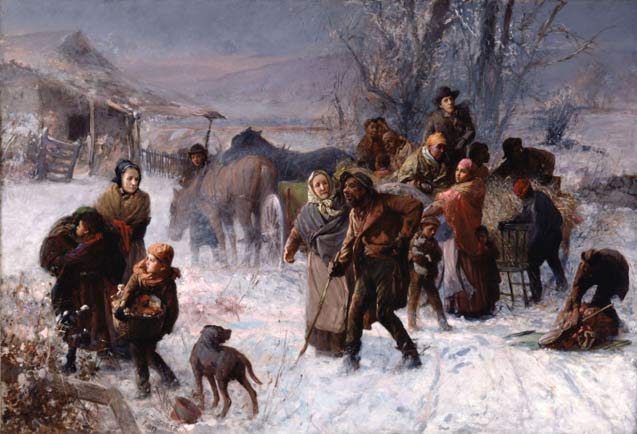 The Underground Railroad, 1893. (Image: Charles T. Webber)
The Underground Railroad, 1893. (Image: Charles T. Webber)
From slavery to Jim Crow to cities today, African-Americans have been leading the cooperative movement.
Cooperative economics and civil rights don’t often appear together in history books, but they should. From the mutual aid societies that bought enslaved people’s freedom to the underground railroad network that brought endangered blacks to the north, cooperative structures were key to evading white supremacy. And there was vicious backlash when black co-ops threatened the status quo.
“The white economic structure depended on all of these blacks having to buy from the white store, rent from the white landowner. They were going to lose out if you did something alternatively,” Jessica Gordon Nembhard, author of Collective Courage: A History of African-American Economic Thought and Practice, told Commonomics correspondent Laura Flanders this week.
For more on co-ops in the black community, read our latest piece on late Jackson Mayor Chokwe Lumumba’s vision.
Join us in defending the truth before it’s too late
The future of independent journalism is uncertain, and the consequences of losing it are too grave to ignore. To ensure Truthout remains safe, strong, and free, we need to raise $47,000 in the next 8 days. Every dollar raised goes directly toward the costs of producing news you can trust.
Please give what you can — because by supporting us with a tax-deductible donation, you’re not just preserving a source of news, you’re helping to safeguard what’s left of our democracy.